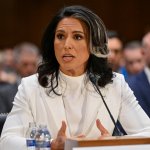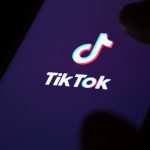
Charter Communications has agreed to acquire privately held Cox Communications for $21.9 billion, combining two of the largest cable and broadband providers in the US as the industry grapples with intensifying competition from streaming platforms and mobile carriers.
The deal revives a merger that was reportedly considered more than a decade ago but ultimately shelved.
Since then, cable operators have come under increasing pressure, with wireless providers luring broadband customers through aggressive pricing and millions of households abandoning traditional pay-TV in favor of streaming services.
Charter and Cox combined market share
The merger will bring together Charter’s 30 million broadband customers and Cox’s 6.5 million residential and commercial users.
Charter operates across 41 states and reaches more than 57 million homes and businesses, while Cox covers 7 million homes in 18 states.
Together, the two companies will form a dominant force in the broadband sector, operating under the name Cox Communications after the merger is finalised.
Charter will retain its consumer-facing Spectrum brand, which includes cable, broadband, and mobile offerings.
Charter ended Q1 with 12.7 million cable TV subscribers and 10.5 million mobile lines.
It lost 60,000 broadband and 181,000 TV customers during the quarter, a trend that mirrors the wider industry’s shift away from legacy television packages.
Cox, which began offering mobile services in 2023, generated $12.6 billion in revenue as of 2020.
Both firms have increasingly turned to mobile bundling strategies to retain users in a saturated and evolving market.
Ownership structure, management, and integration plans
Upon completion of the deal, Cox Enterprises is set to hold approximately 23% of the fully diluted outstanding shares of the newly merged entity.
While Charter Communications will remain the majority shareholder and maintain its headquarters in Stamford, Connecticut, the combined company will also sustain a significant operational footprint in Atlanta, preserving Cox’s regional presence.
Charter’s current president and CEO, Chris Winfrey, will lead the combined company, while Cox Enterprises chairman and CEO Alex Taylor will serve as chairman of the board.
The Cox family will maintain influence with the right to appoint two board members. An additional Cox executive is also expected to join the board.
The transaction includes provisions to rename the merged entity to Cox Communications within a year of closing, with Charter’s Spectrum retained as the retail brand.
Strategic value and expected cost synergies
Charter projects that the merger will generate around $500 million in annualised cost synergies within three years.
These savings are expected to stem from shared infrastructure, streamlined operations, and cross-platform service integration, particularly in mobile and broadband bundles.
The agreement with Cox is timed to close alongside Charter’s merger with Liberty Broadband, a move that simplifies the holdings of long-time cable investor John Malone. Liberty and Charter shareholders approved the Liberty deal in February.
The Cox merger will further consolidate Charter’s position as the second-largest publicly traded cable operator in the US, behind Comcast.
While both companies have avoided rapid declines seen in traditional television markets, they continue to face competition from fixed wireless, satellite broadband, and telecom operators investing heavily in 5G home internet.
The merger with Cox positions Charter to expand its bundled service offerings while leveraging a broader customer base to weather changes in consumer demand and technology.
The post Charter, Cox to merge in mega deal to counter streaming and wireless giants appeared first on Invezz






